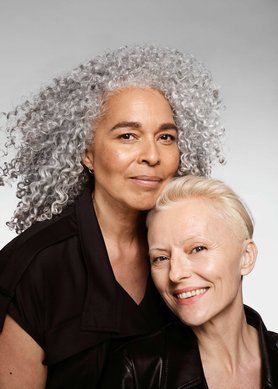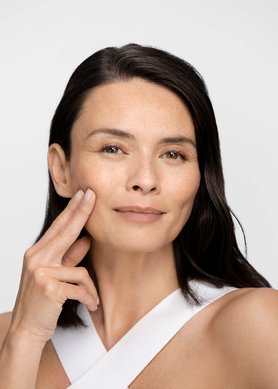Groups of nutrients that are particularly important during menopause
● Vitamin D
● Calcium
● Folic acid
● Polyphenols
● Fiber
● Omega-3 fatty acidscids
Groups of nutrients that are particularly important during menopause are phytoestrogens, vitamin D, calcium, folic acid, polyphenols, fiber and omega-3 fatty acids. Phytoestrogens belong to the group of chemical compounds of plant origin. They can be divided into three groups: flavonoids, lignans and stilbenes. The main source of isoflavones (most popular flavonoids) are: soy and soy products, red clover, chickpeas and medicago. Lignans can be found in: flaxseed, cereals and berries. Stilbenes are found in: grapes, peanuts, cranberry and wine. Epidemiological research shows that diet based on soy and soy products lowers risk of breast cancer, incidence of menopausal symptoms, and osteoporosis(1).
Findings suggest that a high intake of dietary vitamin D and calcium may be modestly associated with a lower risk of early menopause. Vitamin D is obtained via cutaneous synthesis during solar UV-ray exposure, dietary and supplemental intakes. High consumption of dairy products and fish are recommended(2). As you already know menopause contributes to a higher risk of cardiovascular diseases. Homocysteine is a compound that leads to coronary artery disease in high concentration. Therefore it is important to lower it especially in that period of life. Good news is that folic acid supplementation in women after menopause reduces the homocysteine level in the blood serum. So eat products like leafy vegetables, citrus fruit, yeast, meat and whole grains which are main sources of folic acid(1).
Another important group of products are berry fruits. They contain many important dietary components: vitamins, minerals, folate, fiber and polyphenols. They can decrease the risk of cardiovascular disease, cancer and cognition decline; therefore, it is believed that they can be helpful during menopause(3). Omega-3 fatty acids have a significant impact on many diseases, including cardiovascular and cancer diseases. So, they are beneficial in diet during menopause. The source of omega-3 acids are vegetable oils, nuts, seeds and fats of marine fish and mammals(1).
KEY ELEMENTS TO REMEBER ABOUT MENOPAUSE DIET
Yes, there is a special diet that you can adopt. There are simply 7 groups of nutrients that are essential to the well-being on your skin, and you’ll be happy to know that they are everywhere.
Sample diet recommended during menopause:
- Breakfast: Oatmeal with low fat plain yoghurt and blueberries, green tea
- Snack: Vegetable salad: spinach, tomatoes, bell pepper, chickpeas, peanuts, sunflower seeds, vinaigrette (canola oil, lemon juice, basil), water
- Lunch: Salmon, brown rice, green beans, water
- Snack: Raspberry smoothie: milk, raspberries, flaxseed, vanilla
- Dinner: Wholegrains bread sandwiches with mozzarella, tomato and basil, water
SOURCES:
[1]. Brończyk-Puzoń A, Piecha D, Koszowska A, Kulik-Kupka K, Zubelewicz-Szkodzińska B. Rola wybranych
składników odżywczych diety u kobiet w okresie naturalnej menopauzy – przegląd piśmiennictwa. Medycyna Ogólna i
Nauki o Zdrowiu, 2016, Tom 22, Nr 2
[2]. Purdue-Smithe, A. C., Whitcomb, B. W., Szegda, K. L., Boutot, M. E., Manson, J. E., Hankinson, S. E., … Bertone-
Johnson, E. R. (2017). Vitamin D and calcium intake and risk of early menopause. The American Journal of Clinical
Nutrition, ajcn145607.
[3]. Huntley, A. L. (2009). The health benefits of berry flavonoids for menopausal women: Cardiovascular disease,
cancer and cognition. Maturitas, 63(4), 297–301.








